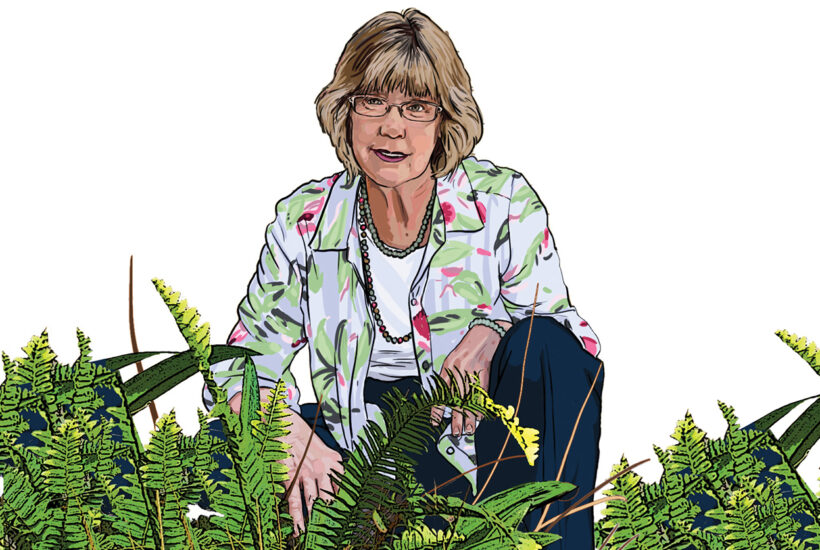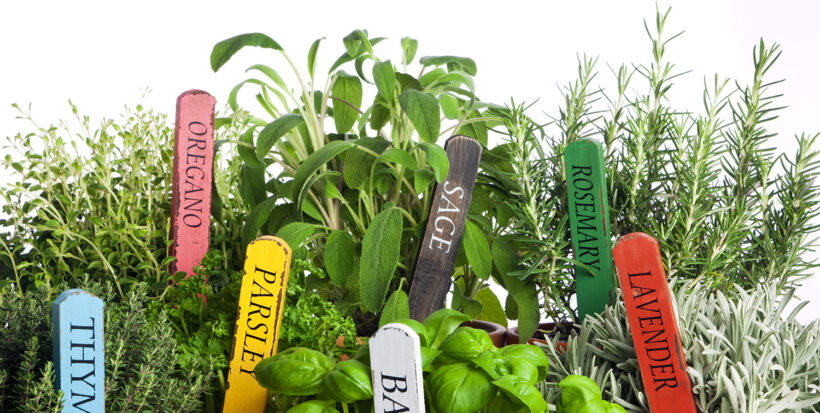Going beyond the good ol’ stalwarts can provide some fun flavors in your dishes and a sweet aroma in your home.
Most folks have tried their hand at growing some of the more common kitchen herbs, such as basil, rosemary and oregano, which are fairly easy to manage here. But there are more interesting and flavorful herbs that do well in North Florida, and I’ve gotten inspiration and great information from Florida’s Best Herbs & Spices by Charles R. Boning.
 Borage is an annual with a long taproot and branching stems. The young leaves make an interesting addition to salads, and the flowers are both decorative and edible. The leaves are said to taste like cucumber. It readily germinates from seed and doesn’t like being transplanted, so sow it where you want it. It’s also moderately drought tolerant.
Borage is an annual with a long taproot and branching stems. The young leaves make an interesting addition to salads, and the flowers are both decorative and edible. The leaves are said to taste like cucumber. It readily germinates from seed and doesn’t like being transplanted, so sow it where you want it. It’s also moderately drought tolerant.
Chicory has wide, natural distribution throughout the U.S. and is considered an invasive weed by some. It’s a herbaceous perennial, growing to about 2 feet tall. It has bright blue flowers that open in the morning and close later in the day. Its root can be roasted and ground and used like coffee; hence, the term chicory brew. It’s pretty darn hardy and survives in poor soil and will thrive in an enriched bed. The roots are generally harvested between February and May. To use it, thoroughly wash the root and roast in an oven at 350 degrees for five hours. Grind the roots into a fine powder and use it the same as ground coffee. It has a light coffee flavor and scent.
All pepper plants are considered “tender” and are perennials, which most people forget, and, if protected over winter, can live on. While in North Carolina, I once had a volunteer green pepper pop up in a compost pile. Out of curiosity, I rigged up a weird little greenhouse with an old shower curtain and that baby grew to be 6 feet tall and lived until Thanksgiving! One sub-freezing night did it in, but man, I was impressed. And it put out peppers the whole time. So, if you have a pepper plant in a pot that you can bring inside and protect, and if you really like peppers… well, why not give it a try.
Chili pepper is a tropical indigenous species and can do well in this part of Florida. Chili pepper flavors can range from snippy to dang, that’s hot! Pick the peppers when they color and handle them while wearing gloves. Don’t allow the seeds or juice to contact your eyes, nose, or ears, and you’d be smart to wear eye protection when cutting. These peppers can be dried, roasted, smoked, ground, pickled and more—just use caution with them.
Lavender is a member of the mint family and is another perennial. It’s lovely but is deemed “not particularly well-suited to growth in Florida” as the humidity and rain can do it damage. But it has such a wonderful fragrance, and it might be worth a try. Lavender prefers slightly alkaline soils and can do well in gravelly locations. It needs to be spaced out and have room to breathe; you don’t want the plants snuggled up together where they might be prone to fungus. If you’re going to try it, plant it in the fall and assume it’s an annual that will be done by June here. You can use the flowers and buds to scent your home.
And of course, try the “classic” herbs that are easy to grow and have lots of uses in the kitchen.
Basil. The adage for this herb is plant often and harvest early. Staggering seeds or seedlings about every two to three weeks will give you fresh leaves to snip through the summer. They’ll live through the summer and be kaput with the first frost. Basil tends to get bitter if it gets too old and if you find yourself with a big harvest that you can’t use up, freeze some of the leaves in ice cube trays and use them in soups later in the year. For a big harvest, make up a batch of pesto. You can also cut stems and stick them in water to root.
Rosemary is a very forgiving herb and can do well in the ground or potted. I kept mine potted for a couple years, then put it in the ground in some sandy, not-real-rich soil at a new place, and it took over the bed in two years. I’m talking 5 feet tall and 6 feet across! And I never fertilized it (which experts recommend you don’t do with most Mediterranean herbs) and only watered it when it looked droopy. It gave me and my neighbors fresh, organic rosemary stems whenever we wanted them.
Florida’s Best Herbs & Spices by Charles R. Boning is available from Pineapple Press. OS
A native Floridian and lifelong gardener, Belea spends her time off fostering cats and collecting caladiums. You can send gardening questions or column suggestions to her at belea@magnoliamediaco.com







